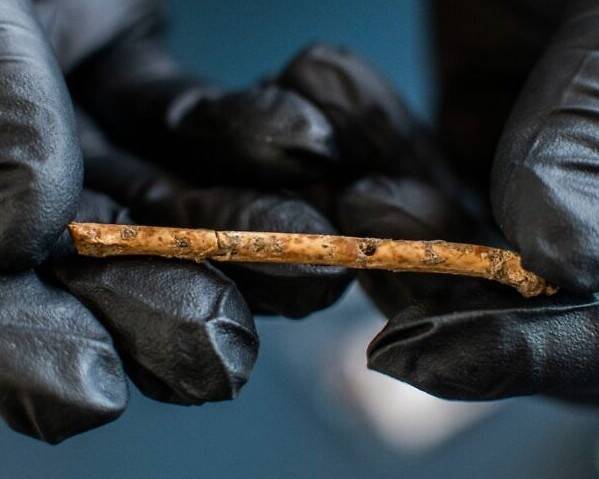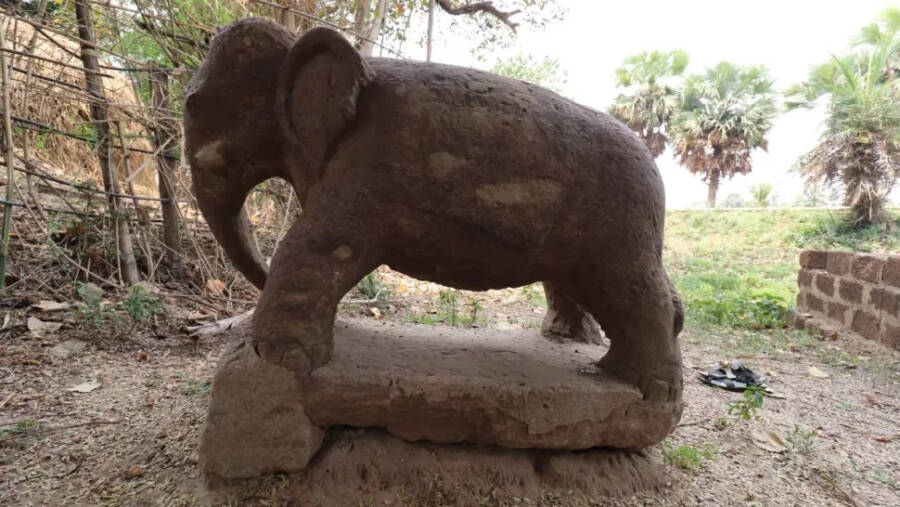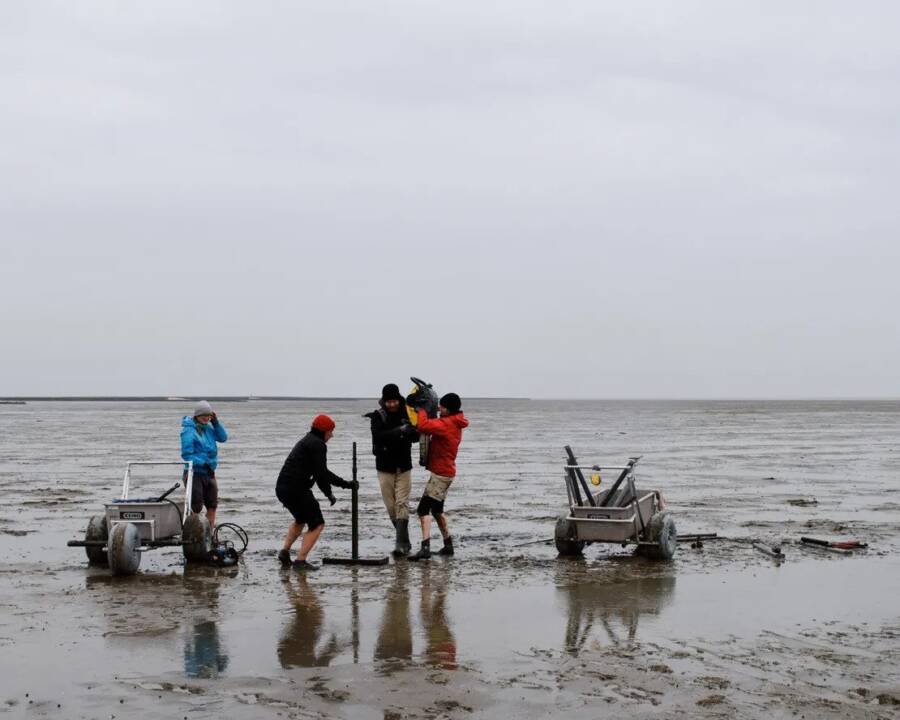Ancient bone flutes uncovered in Israel, 2,300-year-old elephant statue unearthed in India, "Atlantis of the North Sea" found near Germany.
Tiny Flutes Made Of Bird Bones By The Natufians In 10,000 B.C.E. Were Just Discovered In Israel

Hamoudi Khalaily/IAAArchaeologists discovered the remains of seven flutes 20 miles north of the Sea of Galilee, where the Natufian people became one of the first societies in history to transition from a nomadic lifestyle to a sedentary one some 12,000 years ago.
Thousands of ancient bones from the Eynan archaeological site in northern Israel were sitting in storage and the tiny holes in some of them were simply dismissed as normal wear and tear — until one post-doctoral fellow realized that the holes were drilled by humans and that these mere bones were actually flutes.
Experts believe these flutes were designed to mimic the sounds of predators like hawks and falcons, attracting these birds to flocks of prey such as ducks, which could then be grabbed by human hunters as they attempted to flee. Researchers now plan to take the flutes to the exact valley where they were first played 12,000 years ago to see if they can attract hawks and falcons just as the ancient Natufians once did.
Read more about this fascinating find here.
Archaeologists Unearth 2,300-Year-Old Buddhist Elephant Statue In India

Anil Dhir/INTACHThe 2,300-year-old Buddhist elephant statue unearthed near the banks of India’s Daya River.
An archaeological team surveying a village on the banks of the Daya River in east India just uncovered a 2,300-year-old Buddhist elephant statue.
The statue measures roughly three feet high and is carved in rock. In the same village, the team found other artifacts, including pieces of an ancient Buddhist temple.
Dig deeper in this report.
“Atlantis Of The North Sea” Found 600 Years After It Allegedly Disappeared Beneath The Waves

Justus LemmResearchers believe they may have identified the lost medieval town of Rungholt.
According to legend, the Germanic town of Rungholt was swallowed by the ocean in 1362 after a priest prayed to God to punish its sinful inhabitants. Now, researchers believe that they’ve found trace remains of the doomed town, including a harbor, a drainage system, and the foundation of a church among mudflats in the Wadden Sea.
Researchers used “various geophysical methods such as magnetic gradiometry, electromagnetic induction, and seismics” to detect the lost town under mudflats near Hallig Südfall, a small island in the Wadden Sea off the coast of Germany.
See more here.





